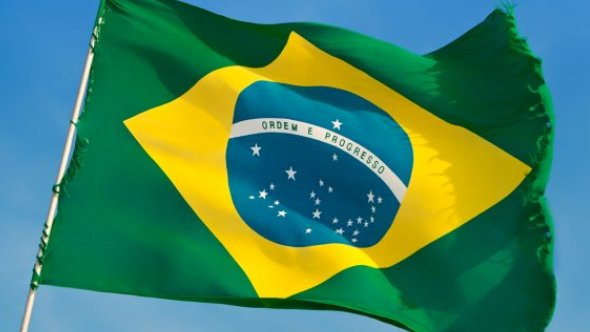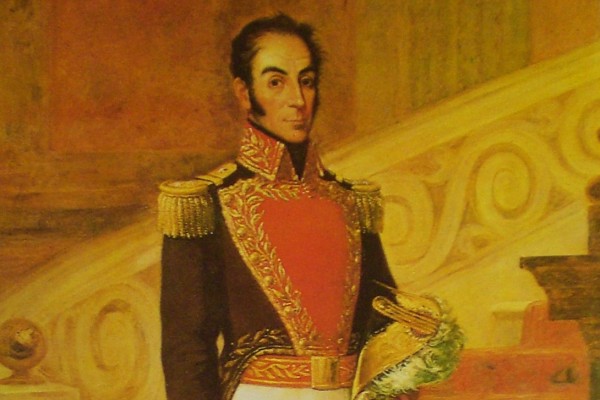Foreign Policy in Brazil: Report 2012-2013
Brazil has become a major voice on the Latin American and international scene, influencing global policy on many different pertinent issues, due to a strong foreign policy.

There is no denying that Brazil is in the driver´s seat when it comes to Latin American integration, with Brazil´s National Development Bank (BNDES) dispersing almost twice as much in loans last year as the World Bank.
Simon Bolivar, the great Latin America Liberator who gained independence from the Spanish for Colombia (1810), Venezuela (1811), Peru (1821), Panama (1821), Ecuador (1822), and Bolivia (1825), dreamt of a Union or Federation of Latin America States strong enough to rival the United States of America. Obviously, Bolivar´s dream has never been fulfilled, but with Brazil´s growing economy as the driving force, pundits are now saying that this aspiration could one day become a reality.
Article 4 of Brazil´s Federal Constitution states that “The Federative Republic of Brazil shall seek the economic, political, social and cultural integration of the peoples of Latin America, seeking the formation of a Latin American community of nations” and several key political and economic accords have been reached within Latin America over the last 10 years with this premise in mind.
The Southern Common Market (Mercosur) was inaugurated in 1995 stating its remit as taking a “step towards bringing about Latin American integration” and enabling the “free movement of goods, services and factors of production” between its members, currently Brazil, Argentina, Uruguay, Paraguay (Paraguay´s membership is currently under suspension after its President was impeached by congress) and Venezuela. Mercosur is itself part of a larger union, namely the Union of South American Nations (Unasur), formed by a treaty signed in Brasilia in 2008, which has the entire continent, except for French Guiana, as members, and for which both Panama and Mexico hold observer status. Its treaty states the Union´s purpose as being “to build, in a participatory and consensual manner, an integration and union among its peoples in the cultural, social, economic and political fields whilst functioning within the framework of strengthening the sovereignty and independence of the States”. Unasur replaced the existing South American Community of Nations (CSN) which had already united both Mercosur and the other main South American trade group, Andean Community (CAN). Modelled on the EU its underlying objective is to create a free trade zone with a common currency, parliament, and passport linked by an inter-oceanic highway with former Secretary General of the Andean Community, Allan Wagner, speculating that it “could be implemented by 2019”.

In 2010 Unasur acted successfully as a mediator when Venezuelan President, Hugo Chavez cut off diplomatic relations with Colombia, resolving the problem and hence showing its worth as an organization for Latin American integration. This resolution was facilitated by Brazilian President at the time, Lula, and despite problems with the global economy the region is growing economically, at an annual rate of 4.5%, with Brazil to a large extent propelling this development, as in terms of Mercosur alone Brazil accounts for over 60% of overall imports and exports.
Although the majority of Unasur´s member States see the advantages of being aligned with the world´s sixth-largest economy, not everyone thinks that Brazil is the benevolent giant it makes itself out to be. In a recent attempt to thwart Brazil´s growing hegemony Colombia joined Mexico, arguably Brazil´s biggest economic rival in Latin America, to form the Pacific Alliance which saw Colombia pull out of the group led by Brazil at the International Monetary Fund and join forces with another group led by Mexico. The Pacific Alliance is aptly named in so much as it refers to the ocean that Mexico and Colombia share with Asia which Brazil doesn´t have and which is rumoured to be Brazil´s main reason behind proposing and financing building works on a highway linking Brazil with Peru.
Environmentalists and local communities are also protesting about many of these new highways which reportedly threaten eco-systems and traditional ways of life and Brazil is gaining the tag of “Imperialist” or even “Bully” amongst communities in some of South America´s smaller nations with César Gamboa of the Peru-based group Rights, Environment and Natural Resources, being quoted on foreignpolicy.com’s website as saying “Brazil doesn’t want to be considered the region’s new imperialist power, but that’s what they act like”. Adding that “these megaprojects are designed to fuel and enhance Brazil’s mammoth economy above all else”. So whilst there´s no denying that Brazil is in the driver´s seat when it comes to Latin American integration, with Brazil´s National Development Bank (BNDES) dispersing “almost twice as much in loans last year as the World Bank” according to Reuters, Brazil´s foreign policy on the South American continent, like that of Bolivar himself, is being viewed by some as increasingly dictatorial and whilst many of its counterparts are growing on the back of Brazil´s economic expansion an integrated Latin America with Brazil calling all the shots definitely isn´t what Bolivar and others imagined.
Brazil often steps up to challenge the USA´s political and economic influence in Latin America, and although further afield it plays an essentially peaceful role in terms of foreign policy, fostering multilateral diplomacy through the United Nations (UN) and the Organization of American States (OAS) and listing national independence; self-determination; non-intervention; defence of peace; and the peaceful settlement of conflicts as some of the constitutional principles governing its international relations, it will by no means be taking a backseat on the international scene.

Towards this end Brazil has developed the Brazil Cooperation Agency (ABC), an arm of the Ministry of Foreign Affairs “in charge of all international technical cooperation involving Brazil and other countries or international organisms” and its mandate is to increase knowledge and cooperation in the areas of agriculture; education; health; environment; public administration; transport; and energy. Its website states that “sustainable economic growth, political stability and effective public policies have made it possible for Brazil to reduce regional and social inequality, establishing a platform for a more proactive international role based on sharing successful development experiences and knowledge.” So as Brazil becomes more apt at dealing with its internal problems it is more able to assist both developing and developed nations facing the same kinds of problems. It has especially focussed on the Portuguese-speaking African nations who require knowledge-based assistance with agricultural challenges. Brazil also offered a highly beneficial aid initiatives after the 2010 earthquake in Haiti modelled on the successful Bolsa Familia (Family Grant) and Bolsa Escola (School Grant) policies started during the Lula years which provide funding and incentives to attend school to the poorest of families.
Brazil´s foreign minister, Antonio Patriota, has stated that his country holds a rather privileged position, declaring on foreignpolicy.com’s website that Brazil has “no real enemies, no battles on our borders, no great historical or contemporary rivals among the ranks of the other important powers… and long-standing ties with many of the world’s emerging and developed nations.” He also confirmed that Brazil is not investing heavily in terms of its military capabilities, preferring to pursue diplomatic resolution methods to military ones. Indeed the fact that Brazil has lived so peacefully with its neighbours for so long has actually prompted many to ask “What is Brazil’s army for?” The Brazilian government has stated that the Army´s key focus over the coming years will be to back up its police force during the World Cup and Olympics, as was noticeable during the UN Rio +20 conference which took place without any security incursions in June this year, and to defend its Amazon boarders. Although TheEconomist.com labelled this as “bizarre” given that “Brazil has not fought over any bits of the Amazon since the scrap with Bolivia over Acre 107 years ago” adding that “it is at peace with its seven neighbours in the Amazon, and has been for a long time.” However whilst Brazil has no pressing need to expand its military might, even small, peaceful nations such as New Zealand have an army and as Brazil desperately needs to prove to a still dubious world just how safe it really has become being able to count on military back up remains a sensible policy.
Brazil has also joined the club known as the BRICS which stands for Brazil, Russia, India, China, and South Africa and is recognized as the second set of main actors on the global stage behind the G-7. This inclusion has secured Brazil a major voice on the international scene allowing it to influence global policy on pertinent issues from climate change to human rights as well as peace in the Middle East and development in Africa.
So as Brazil continues to grow, albeit more slowly than previously predicted, its voice becomes stronger and what it says carries more weight, the challenge now is being able to play a role in fulfilling Bolivar´s dream without becoming the dictator that Bolivar himself became.